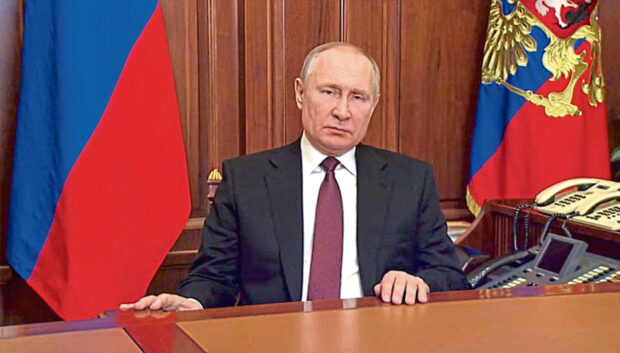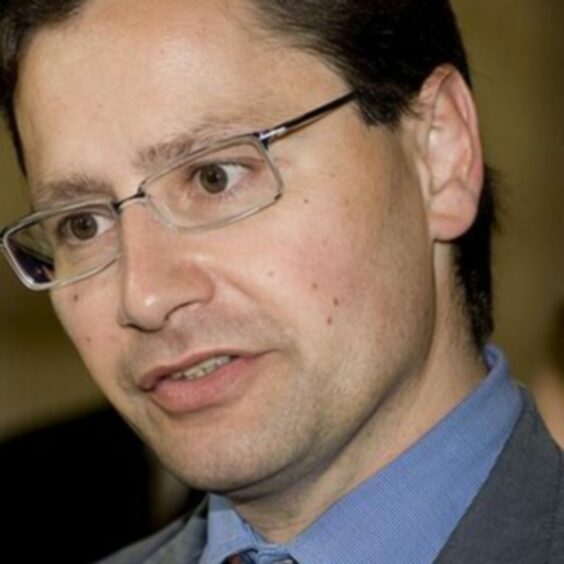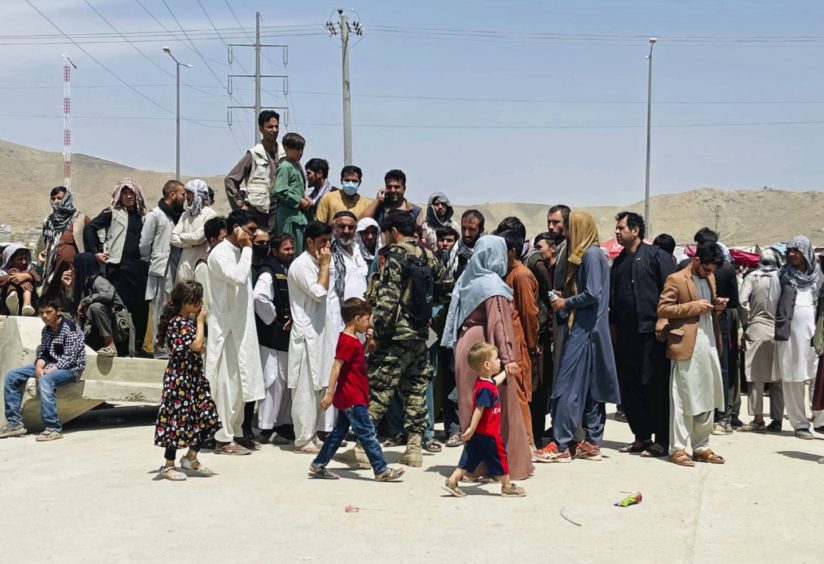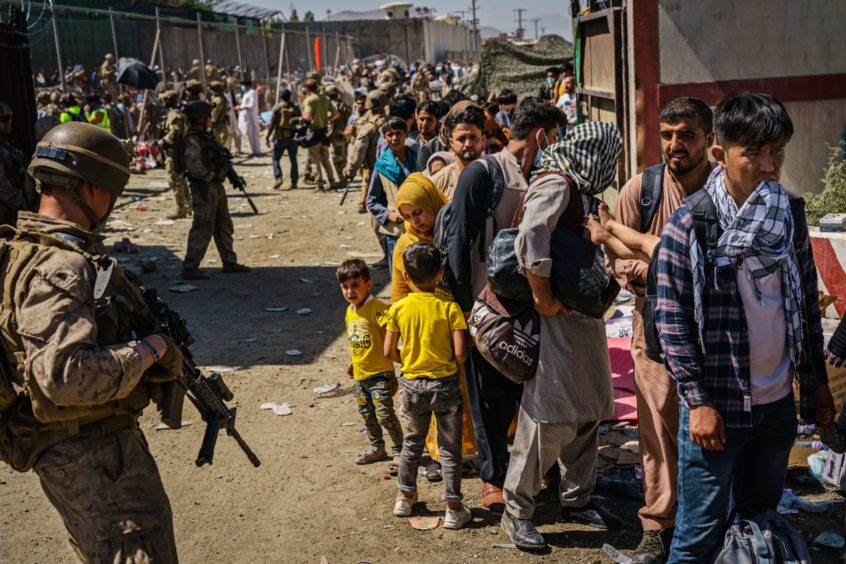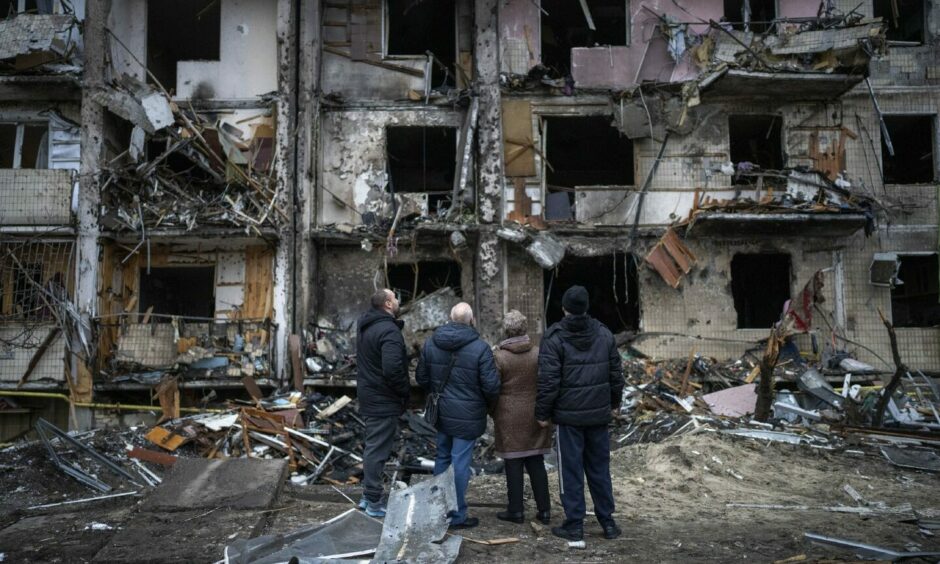The decision by US President Joe Biden to complete the United States armed forces withdrawal from Afghanistan in August 2021 was a “massive green light” for Russian president Vladimir Putin to invade Ukraine.
Dr Brian Brivati, former professor of contemporary history at Kingston University, said the cessation of a 20-year “interventionist” stance by the West in Afghanistan in favour of “isolationism”, influenced Putin’s decision to go ahead with this week’s invasion without fear of military consequence.
Dr Brivati, who left Kingston University to become director of the John Smith Memorial Trust and implement capacity building programmes for the UN and for the UK government globally, said Biden could have rejected Donald Trump’s controversial Doha Agreement.
This provided for the withdrawal of all foreign forces from Afghanistan in return for a Taliban pledge to prevent al-Qaeda from operating in areas under Taliban control.
However, the “unnecessary” decision to “cut and run” and follow-through with Trump’s timetable for a US-end game in Afghanistan played into Putin’s hands.
“We should have been talking about Ukraine since 2014,” Dr Brivati told The Courier.
“But if Biden had changed tack – shown that he didn’t accept the Doha deal, continued negotiations with the Taliban, and stepped up the military operation against the Taliban to ensure they couldn’t take control of that number of Afghan cities that quickly – that would have sent a very clear message to Putin that the international order had changed post Trump.
“Instead, he endorsed the deal, accelerated the timetable, messed up the (Afghanistan) evacuation and sent the message that ‘business was going to be usual’ as it was under Trump which encouraged Mr Putin to do what he’s now doing.
“Putin’s wanted to do this since 2014. I’m surprised in some ways he didn’t do it sooner, that he didn’t do it under Trump. But clearly he can see now there’s nothing to stop him.”
Friends in Ukraine
Dr Brivati has spent much of the last week supporting his network of friends and colleagues in Ukraine.
One reason why no one in the western political spectrum is talking about going to war to support a war of self-defence in Ukraine is because Putin has nuclear weapons.
But the other reason, says Dr Brivati, is we are “no longer in that business of getting involved”.
“We now live in a world of isolationism and we are prepared to allow regimes to basically do whatever they like to their own people within certain ‘silos’,” he says, “whether that’s the Chinese silo, the Russian silo or whatever.
“Now that may be inevitable because of the failure of doing the opposite which was to intervene, in places like Afghanistan.
“But what I am saying is there are consequences of living in an isolationist world.
“One of those consequences was the abandonment of Afghanistan to the Chinese sphere of influence.
“The abandonment of 10s of thousands of people to be left behind, the abandonment of women and girls education and dreams of a generation.
“Maybe that’s the price we want to pay because we don’t believe it’s any of our business anymore. That may well be right. I don’t know.
“But what do we do about the current genocide taking place in China right now?
“What do we do about the invasion of a sovereign country by Russia?
“We don’t have an answer. Just sanctions and so on.”
Ukraine events ‘started in Kabul’
Dr Brivati says it’s clear that under Trump, the USA was heading into its own isolationist silo of influence.
However, to an “extraordinary extent”, Biden has endorsed that Trump doctrine and Europe is effectively left as the “final bastion of international law”.
The only encouraging news, he says, is that the Germans cancelled the NordStream 2 gas pipeline from Russia
“My overall point is the current events in eastern Ukraine started in Kabul,” he says.
“Putin’s been waiting since 2014 for his moment to take the rest of Donbass and open up a water pipeline in particular that he needs to go into Crimea by taking Myropol.
“August in Afghanistan was a massive green light – troops build up and intensified from August onwards.
“And the invasion began this week but it really began last August.
“He realised that nothing was going to stop him doing what he wanted to do in terms of that territorial expansion.”
Fear of ‘house-by-house’ fighting
Dr Brivati agrees the outlook remains uncertain and there needs to be a “re-think” of what role institutions like the United Nations now play.
However, he believes that Putin could yet be “unpleasantly surprised by the level of sanctions being imposed.”
He also thinks Putin could become bogged down in a bloody “war of attrition” as he faces fierce Ukrainian resistance.
While it’s unclear what Putin’s end game might be, one scenario, says Dr Brivati, is that the Russians push on to get as much Ukrainian territory as they can, secure his lines and then try and negotiate a peace which is “even worse than the terrible peace they negotiated in Minsk”.
This, he suggests, might allow Putin to keep the two pro-Russian republics and establish a water supply into Crimea.
However, he adds: “The problem there is whether the Ukrainian government survives that process itself.
“I think it’s going to be a long and incredibly bloody street by street, house by house conflict.”
- A full interview with Dr Brian Brivati about his new book ‘Losing Afghanistan’ appears in The Courier’s Weekend magazine of Saturday March 5.
